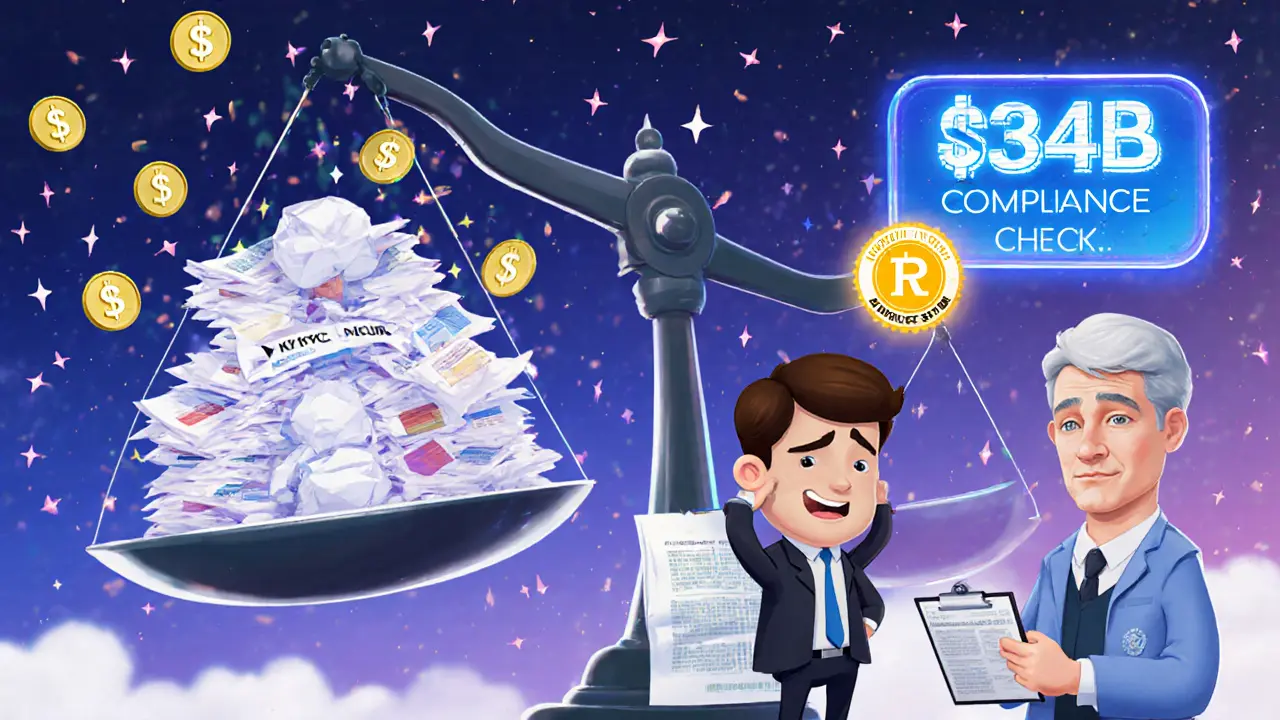Crypto Exchange Fines: What Happens When Exchanges Break the Rules
When a crypto exchange fines, penalties imposed by financial regulators on cryptocurrency trading platforms for violating laws. Also known as crypto regulatory penalties, these fines aren’t just paperwork—they can shut down entire platforms, freeze user funds, or force a complete rebuild of a company’s operations. This isn’t theoretical. In 2024, at least five major exchanges were fined or forced to shut down for failing to verify users, hiding ownership, or operating without licenses. The crypto regulation, government rules that govern how cryptocurrency platforms operate. Also known as cryptocurrency compliance, it’s no longer optional. If you’re trading on a platform that doesn’t answer to anyone, you’re not just taking market risk—you’re risking your money entirely.
Most fines happen because exchanges skip basic rules: no KYC, no AML checks, no transparent ownership. Take exchange shutdown, the forced closure of a crypto trading platform due to legal violations or loss of user trust. Also known as crypto platform collapse, it’s often the final step after repeated fines. Bitsdaq and EtherMuim didn’t just disappear—they were flagged, investigated, and then vanished. Users lost access to their coins because there was no legal entity behind the platform to protect them. Even if an exchange looks flashy, if it doesn’t have a registered business address, public team, or audit history, it’s a ticking time bomb. The crypto scam, a fraudulent crypto platform designed to steal user funds under false pretenses. Also known as fake exchange, it often hides behind fake reviews and fake trading volumes. is just one step away from a fine. Regulators don’t always catch scams before they happen—but they do catch them after, and the list of punished platforms keeps growing.
What’s next after a fine? Some exchanges pay up and clean up. Others go dark. A few, like Play Royal Exchange and Rokes Commons, never even tried to comply. They were scams from day one. The real danger isn’t just losing money to a bad trade—it’s losing it to a platform that never had any legal responsibility to you. That’s why knowing the difference between a regulated exchange and a ghost operation matters more than ever. The regulatory action, official enforcement steps taken by authorities against non-compliant crypto businesses. Also known as crypto enforcement, it includes fines, asset freezes, and criminal charges. isn’t just about punishing bad actors—it’s a warning to everyone else. If you’re using an exchange without a clear license or public compliance record, you’re already in the danger zone. Below, you’ll find real cases of exchanges that crossed the line, got caught, and what happened to the people who trusted them. No fluff. Just facts about who got fined, why, and how to stay safe.
$34 Billion Potential Penalties for Korean Crypto Exchange Upbit Over KYC Failures
Upbit, South Korea’s largest crypto exchange, faced potential $34 billion fines for failing to verify half a million users’ identities. The crackdown exposed systemic KYC failures and triggered global compliance reforms.
- 23
- Read More
